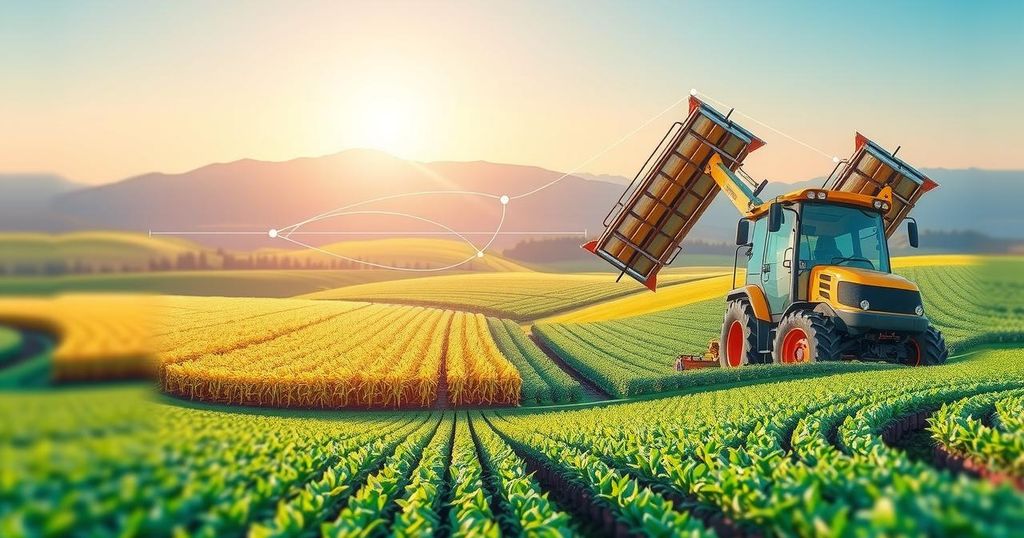The Kenya Agricultural and Livestock Research Organization (KALRO) has digitized its agricultural innovations for farmer accessibility via digital platforms. During a briefing, Director General Dr. Eliud Kireger discussed the role of digitization in overcoming the inefficiencies of extension services and highlighted the significance of climate-smart technologies. KALRO will showcase these innovations during the CGIAR Science Week in April, reinforcing Kenya’s position in agricultural research.
The Kenya Agricultural and Livestock Research Organization (KALRO) has taken significant steps by digitizing its agricultural innovations, thereby enhancing accessibility for farmers through mobile-friendly platforms. During a media briefing in Nairobi, Dr. Eliud Kireger, Director General of KALRO, emphasized that this initiative aims to compensate for the shortcomings of underperforming extension officers and ensure farmers access crucial information on sustainable farming practices, improved seeds, and effective pest management strategies.
Dr. Kireger highlighted the importance of this digitization effort, particularly in light of the challenges posed by climate change, which greatly affect small-scale farmers. He stated that KALRO will present various agricultural technologies, both developed locally and from other regions, during the upcoming CGIAR Science Week in April. This event will underscore the relevance of agricultural science in enhancing food security and nutritional stability.
Additionally, Dr. Kireger expressed the objective of illustrating how scientific advancements can lead to improved agricultural productivity while conserving natural resources. He noted, “For us to help our farmers, we have ventured digitizing all our innovations so that they are easily accessible on digital platforms, whether it is mobile platforms or through ICT.”
The choice of Nairobi for the CGIAR Science Week is significant, as it establishes Kenya as a pivotal center for agricultural research within Africa. Partners attending the event will display successful agricultural models, innovations, and management practices that can be adapted to various contexts. Dr. Kireger remarked that partnerships with organizations like CGIAR are essential for securing the resources necessary for extensive research initiatives.
According to Dr. Kireger, drought-resistant agricultural technologies significantly influence both farmers and the broader economy, particularly through their effects on GDP. He called attention to the critical need for smallholder farmers in sub-Saharan Africa, including Kenya, to access these technologies amidst the ongoing challenges of climate change.
During the Science Week, KALRO plans to present an array of climate-smart solutions, drought-tolerant crop varieties, and advanced pest management tools. Dr. Kireger assured that technologies will be specifically tailored to benefit small- to medium-scale farmers, addressing the existing disparity in access to tools and knowledge between large and small producers.
He urged the government to address the affordability of essential agricultural inputs such as seeds and pesticides, which farmers currently find prohibitively expensive. Dr. Ismahane Elouafi, Executive Managing Director of CGIAR, echoed this sentiment, advocating for a supportive environment for local innovation and manufacturing in agricultural technologies, from fertilizers to seed production.
In summary, KALRO’s digitization of agricultural technologies represents a transformative step towards enhancing farmer access to vital agricultural practices and resources. This initiative not only aims to address the shortfalls in agricultural extension services but also seeks to bolster food security amidst the challenges presented by climate change. The upcoming CGIAR Science Week will showcase advancements that promise to improve agricultural productivity and environmental sustainability.
Original Source: africasciencenews.org






